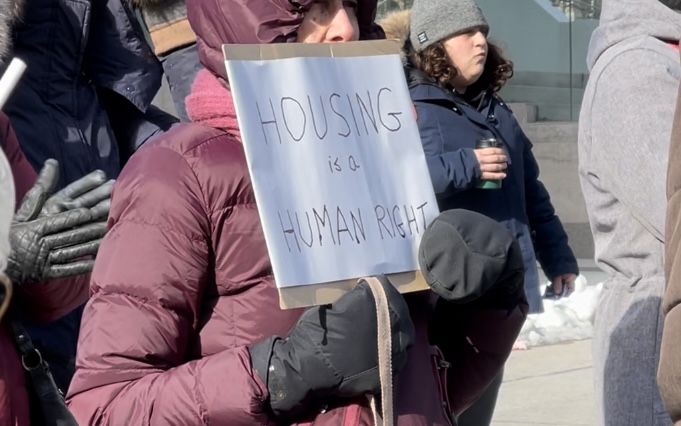
Listen to the full story here:
Toronto city councillors voted Wednesday to reject the Board of Health’s recommendation to open warming centres 24 hours a day, seven days a week.
In January, the Board of Health passed a motion urging city council to provide around the clock access to warming centres for people living on the street.
“We’re spending beyond our ability to fight a condition that exists in this city,” said Coun. Michael Thompson, who introduced amendments rejecting the call for the 24/7 warming centres and another Board of Health recommendation that council declare a public health crisis due to the lack of these centres.
Thompson said the city is spending a “significant amount of money” trying to provide shelter while the other two levels of government are not contributing enough. He also pointed to a city staff report that said it will cost an estimated $400,000 to run a single 24/7 warming centre for one month.
Some members opposed Thompson’s amendments, saying more needs to be done to help those experiencing homelessness.
“We have a duty in this city to protect each other, especially in harsh and cold weather conditions,” said Coun. Ausma Malik.
Coun. Alejandra Bravo said the issue is one of priorities, not funds, given the city came up with the money to deploy 80 Toronto Police Services officers a day to patrol the transit system last month.
As a result of the vote, warming centres will continue only to open when the city’s Medical Officer of Health issues an extreme cold weather alert. An alert is issued if Environment and Climate Change Canada forecasts temperatures at -15 C or lower.
While it rejected the Board of Health’s recommendation, council did approve:
Thompson’s call upon the provincial government to require all large municipalities provide shelter space and his demand that the federal government give support and funding for refugees in need of emergency shelter.
a motion directing every councillor to identify one available location in their ward for a potential warming centre.
a request for Mayor John Tory and the economic and community development committee to explore potential partnerships with faith leaders in Toronto that would see faith spaces like churches and mosques temporarily used as warming centres.
direction for the Shelter, Support and Housing Administration to report back to council on the feasibility of opening 24/7 warming centres.
Since the Board of Health motion last month, calls from advocates and healthcare providers to keep centres open 24/7 have only grown.
Dr. Stephen Hwang, a physician and research scientist at MAP Centre for Urban Health Solutions, says there are serious health risks posed well before temperatures drop below -15 C. An increased risk of respiratory illnesses, foot injuries, frostbite and negative mental health effects are just some of those risks.
“Long before they develop the medical complications that cause them to show up in the medical department, they are suffering adverse consequences,” Hwang said of those who are unable to get in from the cold.
Warming centres, Hwang added, are a last resort and their need stems from a lack of more permanent living spaces. “We haven’t addressed the underlying problem. We’ve had a cascading series of events where [a] lack of housing results in [a] lack of shelter beds, resulting in need for warming centres.”
Copy editor, On The Record, Winter 2023.

